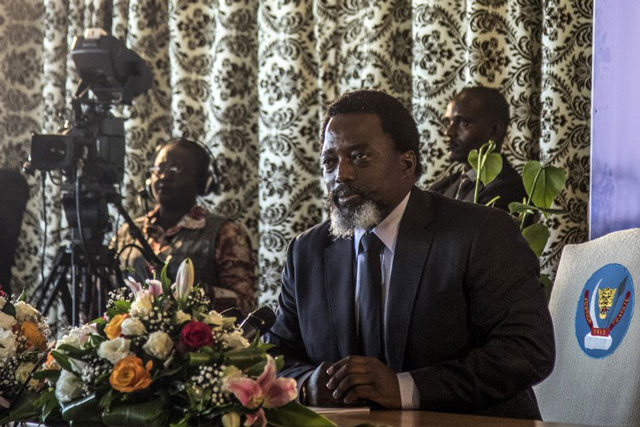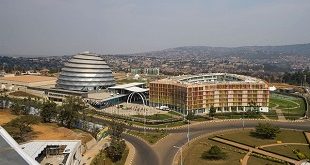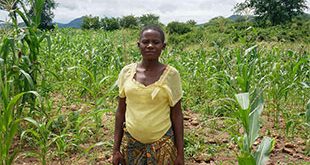
Kinshasa, DR Congo | AFP | DR Congo President Joseph Kabila on Friday stood by the timetable for delayed elections despite demands that he step down ahead of the poll.
“We have to have elections as scheduled,” Kabila said at his first press conference since 2012, referring to the date of December 23, 2018 announced last year.
“I note that, on our side, there is a roadmap, and what other people are proposing is nothing, zero, a jump into the void, a leap into the unknown.”
During the rare two-hour press conference, in which Kabila made an opening statement then answered questions, he did not respond specifically when asked if he plans to stand for a third term in office — something that is outlawed by the constitution.
Kabila, 46, has been in power since 2001, at the helm of a regime widely criticised for corruption, repression and incompetence.
His constitutional term in office expired in December 2016 but he stayed on, under laws enabling him to remain office until his successor is elected.
Under a deal brokered on December 31, 2016 by the powerful Catholic Church, Kabila agreed that new elections would be held by the end of 2017.
– String of rallies –
The authorities late last year postponed the election until December 23, 2018, citing what they said were logistical problems in preparing for the vote.
Since then, there has been a string of rallies demanding his departure, each of which has been repressed by the security forces.
“I would like us to have peaceful elections. Is that what the opposition wants — question mark?” he said rhetorically.
Kabila said he would soon introduce a law to “reframe” the right to protest for “those who wish to express themselves.”
Officially protests have been banned in the country since the bloody days of September 2016, when violence in Kinshasa between youths and security forces left dozens dead.
“I am very attached to democracy but democracy is not a fairground,” he added.
The latest violence flared on January 21, when security forces opened fire on Catholic-organised demonstrations, killing six, injuring scores of others and arresting dozens, according to figures released by the UN mission MONUSCO.
– Diplomatic tensions –
The bloodshed has been condemned by the European Union and the United Nations and placed Kabila’s regime on a collision course with the influential Catholic church and the country’s former colonial power, Belgium.
On Wednesday, the government said it had told Belgium to close its new development agency in the country and shutter a centre, known as the Schengen House, which issues visas on behalf of fellow countries in the EU’s border-free zone.
Kabila said Friday the relationship between the government and the UN mission was troubled by a “misunderstanding.”
MONUSCO has repeatedly and sharply reminded the DRC authorities of the right to peaceful demonstration and freedom of expression.
It was time to “clarify” the relationship, said Kabila, adding that there could be no “co-management” of the DRC between the UN and the government.
“One gets the impression that their profession is to stay around,” he said, recalling that the DRC — in 2010 — had “demanded the UN secretary general draw up a plan for withdrawal”.
Sprawling, mineral-rich but mired in poverty, DR Congo is in the grip of overlapping political and ethnic crises, and much of the country’s east is in the hands of rival militia groups competing over resources.
 The Independent Uganda: You get the Truth we Pay the Price
The Independent Uganda: You get the Truth we Pay the Price



